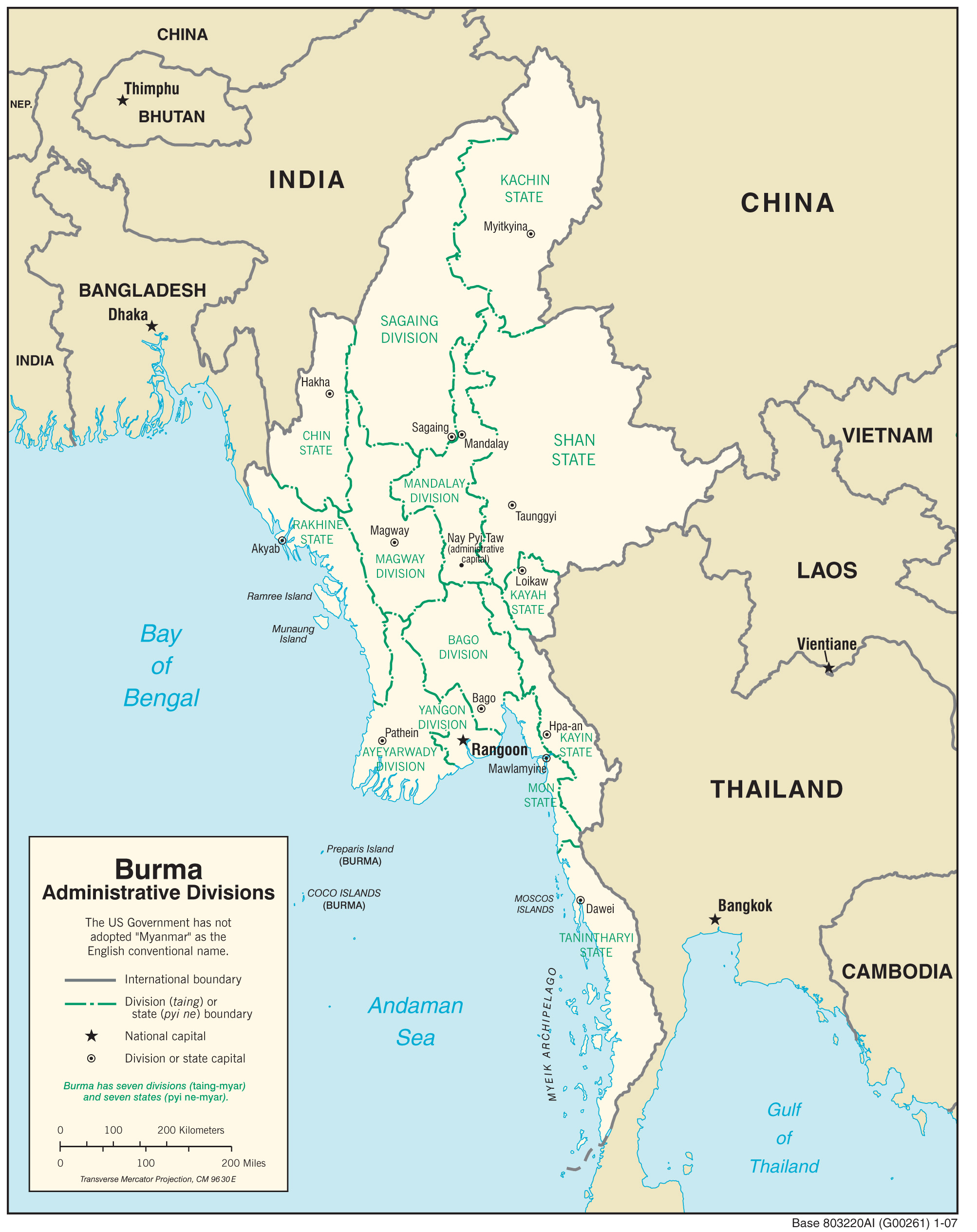Burma has been ruled by military dictatorships since 1962. The dictatorship, wanting to end sanctions and their international pariah status, while maintaining their control of the country, embarked on a series of reforms. The first step in that reform process was to bring in an undemocratic constitution, which legalised dictatorship with a civilian front. Rigged elections held by the military regime in November 2010 brought in the new constitution, and a new military-backed government led by former senior general Thein Sein. The transition saw a change from direct military dictatorship to a more ‘ordinary’ authoritarian regime.
In elections in November 2015, the National League for Democracy (NLD), led by Aung San Suu Kyi, won a landslide victory. This brought an end to more than fifty years of military rule and introduced a hybrid system of military rule and democracy.
The elections marked another step in the military’s carefully planned transition from direct military rule to a hybrid military and civilian government, which is accepted by the international community and sections of Burmese society. Burma’s 2008 Constitution was drafted by the military dictatorship to present the appearance of democracy, while maintaining ultimate military control.
Under the Constitution, the new National League for Democracy government were forced to share power with the military and had limited scope to prevent some of the most serious human rights abuses from continuing. The military remained in control of key areas such as the police, security services and much of the justice system. The army remained beyond the control of any civilian government and free to continue attacks against ethnic people. With the military guaranteed 25% of the seats in parliament, they continued to hold a veto over efforts to make the Constitution more democratic.
The 2008 military constitution banned Aung San Suu Kyi from becoming President, but since 2016 she was de facto leader of the Burmese government in the position of State Counsellor.
The Burmese army has continued to commit serious human rights abuses, including rape, torture, executions, forced labour, use of child soldiers, and deliberately targeting civilians. Many of these abuses violate international law and could be classified as war crimes, crimes against humanity and genocide. Neither the military or the NLD have respected human rights.
The NLD won an overwhelming victory in the general election in November 2020. The military backed political party suffered a crushing defeat in the election.
On 1 February 2021, the day when the newly elected MPs were due to convene to choose the President, the military in Burma staged a coup. The Burmese military, led by Min Aung Hlaing, arrested many political leaders and human rights activists, including Aung San Suu Kyi and President Win Myint, in night time raids.
They declared a state of emergency for one year, and said new elections would be held only after a series of conditions have been met, including an investigation into electoral fraud and economic recovery from the COVID pandemic. The military used false claims of fraudulent votes in the election to justify their coup. There is no evidence of any significant fraudulent voting in the election.
Burma is a country of many different ethnicities and religions but the military sees this as a threat and refuses to give rights and protection to Burma’s ethnic minorities. There cannot be democracy or lasting peace and stability in Burma until the rights of ethnic people are protected and their call for more autonomy is granted.

Burma or Myanmar?
Burma Campaign UK uses Burma as this is what Burma’s democracy movement prefers. They stated that the dictatorship had no legitimacy and so no right to change the name of the country to Myanmar.
As far as individuals, organisations and media are concerned, Burma Campaign UK takes no position, as we believe it is more important to talk about what should be done about ongoing human rights violations in the country, rather than what it should be called.
